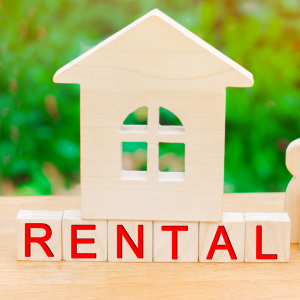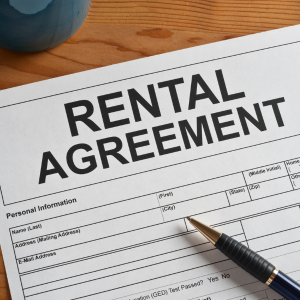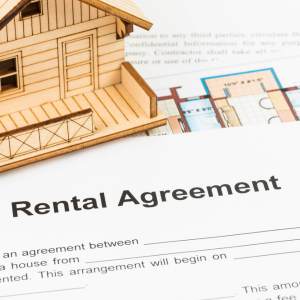
What Are the Legal Implications of Selling a Rental Property in South Carolina?
To sell a rental property in South Carolina, you must first grasp state rules and tenant rights. Landlords should be familiar with South Carolina landlord-tenant legislation to avoid legal issues. This knowledge is useful when dealing with tenant rights while selling a home. Also, understanding real estate investment in South Carolina will help you earn higher profits while adhering to the law.
Overview of South Carolina Tenant Rights

Tenants have special rights when it comes to selling a rental property. South Carolina has guidelines for tenant relocation and eviction. It is critical to inform tenants about the sale as soon as possible so that they can plan accordingly. Tenants have rights under lease agreements that may affect the sale. Knowing your tenant’s rights when selling a home provides legal compliance and fairness.
Landlord Obligations During the Sale Process
Landlords have responsibilities when selling a property. You should understand your rights as a landlord in South Carolina, but it is also critical to observe legislation such as the Residential Property Disclosure Act. You must notify your tenants that you want to sell rental property to prepare them for the change. Being professional and honoring tenant rights can help to prevent issues and preserve positive relationships.
How to Handle Lease Agreements Legally
Dealing with lease agreements during a sale requires careful consideration. You must grasp the lease termination requirements for property transactions and the consequences of breaking a lease. Selling a house with an existing lease can be complex, but being clear and following the law helps avoid problems. Always obtain legal guidance to ensure you follow South Carolina laws correctly.
How Can You Maximize Property Value Before Selling?
Improving your property’s worth before selling can increase your profits. Concentrate on property appraisal issues and prepare the rental for sale. Making repairs and maintenance before selling increases your property’s appeal to purchasers.
Making Necessary Repairs and Improvements

According to Charles Chan, CEO of Landlord Studio, “Repairs and maintenance before sale increase both appearance and value. Understand how tenants affect property valuation before deciding on essential renovations. Fixing structural faults and modest repairs can impact the final appraisal. Balance cost-effective repairs with those that enhance value to ensure a successful sale.
Importance of Staging a Tenant-Occupied Property
Staging a tenant-occupied property necessitates planning. Using tenant-friendly real estate methods lets you show off your property without troubling the tenants. Adding neutral decor and eliminating clutter are two effective staging tactics. These promote tenant-occupied buildings, making them more appealing to buyers.
The Role of Professional Appraisals in South Carolina
Using professional appraisals in South Carolina independently assesses your property’s value. This approach takes into account numerous aspects related to current property appraisal standards. Understanding the South Carolina housing market analysis allows you to set competitive prices and maximize returns. A careful appraisal is essential for effective pricing and successful property sales.
What Communication Strategies Work Best with Tenants?

When selling a rental property with tenants, good communication is key. This helps keep tenant cooperation, making the sale process smoother.
Tips for Effective Communication with Tenants
Clear communication with tenants is important. Here are some straightforward tips:
- Be Transparent: Let your tenants know about the sale immediately. Explain the process and what they can expect.
- Understand Tenant Rights: Learn about tenant rights to ensure you follow local laws. This will help you handle any questions or concerns correctly.
- Outline Landlord Obligations: Share your duties as a landlord during the sale. Doing so builds trust and shows professionalism.
- Encourage Feedback: Invite tenants to share their thoughts or concerns. Addressing these quickly shows that you respect their input.
How to Maintain Tenant Cooperation During Sale
Keeping tenants cooperative during a sale benefits both parties. Here’s how you can do this:
- Inform Your Tenants About the Selling Process: Inform your tenants about each step of the selling process, including viewings and inspections, so they know what to expect.
- Discuss Tenant Agreements: Check existing tenant agreements. Be sure your actions match these contracts to stay legally sound.
- Highlight Tenant’s Rights When Selling Property: Explain tenants’ rights to reassure them. This understanding helps avoid misunderstandings and encourages cooperation.
- Communicate Changes Promptly: Tell tenants immediately if there are changes because of the sale, like new ownership. This shows transparency and respect.

Addressing Tenant Concerns Transparently
Handling tenant concerns requires clarity and care. Consider these steps:
- Listen and Respond: Invite tenants to share their worries. Listening carefully and responding clearly can ease their stress.
- Legal Advice for Landlords: Get legal advice if needed to respect tenant rights during the sale. This helps prevent legal problems.
- Transparency in Communication During Sale: To build trust, keep communication open and clear from start to end of the selling process.
- Request Tenant Feedback: After discussions, ask for tenant feedback. Understanding their perspective can help improve future interactions.
How Does the South Carolina Real Estate Market Affect Your Sale?
When selling a rental property in South Carolina, you must consider how the real estate market will affect your transaction. Local market conditions will influence both the price you can achieve and how long your home is on the market. South Carolina’s real estate regulations specify what you must disclose and tenant rights, which may affect how you conduct the transaction.

Rental Market Trends in South Carolina
Keeping up with South Carolina’s rental market changes is critical. If there is a great demand for rental homes, you may be able to negotiate for more money. However, you may have to change your expectations if there are too many available rentals.
South Carolina Housing Market Analysis
A property market analysis can help you decide the best time to sell. Timing the market correctly could result in higher profits, especially if home prices rise or more purchasers become interested. A real estate professional knowledgeable about area patterns can assist you with this analysis. Whether your property is in Charleston, Myrtle Beach, or anywhere in between, understanding local trends and buyer activity is key to making a smart, profitable decision
What Should You Do About Tenant Deposits?
When selling a rental property, it is critical to manage tenant deposits properly. South Carolina landlord-tenant laws require deposits to be handled by state regulations to ensure a smooth transition for both the seller and the buyer.
Handling Tenant Deposits

Before you sell, review all renter deposit agreements. You must either convey these deposits to the new owner or settle them with the renters before closing.
Understanding Security Deposits and Property Management Laws
South Carolina property management rules specify how deposits should be managed throughout a property transaction. Keeping proper records and communicating freely with your tenants regarding deposits might help you prevent difficulties.
Resolving Deposit Issues
If there are any issues with tenant deposits, they should be addressed immediately to avoid further concerns. Clear communication and maintaining a record of resolving issues help you maintain strong relationships with your tenants while ensuring you follow legal responsibilities.
What Are the Financial Implications of Selling Your Rental Property?
If you’re considering selling your rental property, some important financial issues should be considered. Knowing these can aid you through the process.
One significant element is the capital gains tax on rental sales. This tax is calculated on the difference between what you paid for the property and what you sold it for, minus specified expenses such as upgrades. If you’ve owned the property for at least a year, you may be eligible for a lower long-term capital gains tax rate.
It’s important to consider taxes when selling rental property. This includes declaring any rental revenue up to the date you sell the property on your tax return. To comply with rental income reporting requirements, keep complete records of all property-related income and costs. If you want help navigating taxes, capital gains, and how to reinvest your earnings, this investment planning resource from CCU is a good place to start.
When selling in South Carolina, it’s important to consider property taxes. These could include local taxes resulting from the property sale or changes in personal property taxes if the property’s use was designated differently, such as farming.
There are bigger financial repercussions. Consider how the sale earnings will fit into your long-term financial plans, such as retirement or investing. A financial advisor can provide guidance that is targeted to your specific situation.
How Can a Real Estate Professional Help with Selling Tenant-Occupied Properties?

Hiring a real estate professional can make selling a tenant-occupied property easier. Here’s what they can do for you:
Selling Rental Property Strategy: An experienced buyer knows how to market a property with tenants. They can create a plan that respects tenant rights while showing the property to buyers.
Marketing Tenant-Occupied Property: Good marketing is key. Experts make listings that show off the property’s best features and schedule viewings around tenant availability to minimize disruption and increase buyer interest.
Coordination with a Real Estate Professional: Your expert is a middleman between you and buyers, handling questions and negotiations professionally. They ensure communications follow tenant-friendly real estate practices, which is crucial when managing properties with tenants.
Another advantage is an expert’s knowledge of South Carolina real estate laws. They stay updated with local rules, helping to avoid legal problems during the sale and ensuring compliance with state and federal landlord-tenant laws.
What Are Some Alternative Selling Strategies?
When selling a rental property, choosing the right strategy is key. Here are some alternative methods to consider:
- Selling the Property: You can sell your property without making any big repairs or upgrades. This is a good choice if you want a quick sale and are looking for buyers ready to handle renovations themselves.
- Selling to an Investor: Investors often look to buy rental properties because they see potential returns. They are usually experienced in managing tenants, which can make the process smoother.
- Sell a Rental with Tenants in Place: Keeping tenants during the sale can appeal to buyers who want immediate rental income. It’s important to communicate with tenants and ensure they know their rights.
- Cash for Keys Agreement: Offering cash to tenants to leave early can benefit both parties. This approach helps ensure the property is empty before listing, which can simplify the selling process.
- Lease Buyout Options: If tenants want to leave early, they can negotiate a lease buyout. This involves understanding the obligations of both parties and reaching a deal that works for everyone.
How Can You Ensure a Smooth Transition for Tenants After Sale?
Making sure tenants experience a smooth transition after the sale is important for maintaining good relationships and meeting legal obligations.
- Understand Tenant Relocation Needs: Talk to tenants about their plans and how the sale affects them. Offer help or resources for relocation if needed.
- Respect Tenant’s Rights When Selling Property: Tenants have rights during a sale, such as getting proper notice of the sale or ownership changes. Respecting these rights is legal and helps make the process run smoothly.
- Managing the Transition: Ensure leases are transferred correctly to the new owner. Also, ensure lease details and tenant information are accurate and shared with the buyer.
- Fulfill Landlord Obligations: Before completing the sale, take care of all obligations, such as returning security deposits or fixing maintenance issues. Give tenants enough notice to make necessary arrangements.
- Communication and Notice Period for Tenants: Open and honest communication is crucial. Inform tenants well in advance about any changes and keep them updated to manage expectations and reduce stress.
By using these strategies and focusing on tenant welfare throughout the selling process, landlords can achieve a successful property sale while maintaining a positive relationship with tenants. For more information or to discuss your property needs, contact our team at Turner Home Team.
If you’re looking to sell a house in South Carolina, this guide is packed with valuable insights to help you navigate the process smoothly. Whether you’re in Florence, Myrtle Beach, Conway, Socastee, or any nearby area, the tips and strategies shared here are designed to make your experience easier. At Turner Home Team, we specialize in helping homeowners sell quickly and hassle-free. If you need personalized assistance or have specific questions, don’t hesitate to Contact Us at (252) 525-4780. We’re here to help every step of the way!
Get Your Offer Now!
START HERE: We buy properties in ANY CONDITION.


